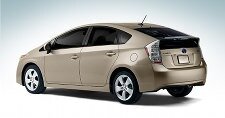Recent articles
-
Friday, June 3, 2011 - 5:23pm
-
Sunday, May 29, 2011 - 2:54pm
-
Friday, May 27, 2011 - 5:21pm
-
Thursday, May 26, 2011 - 9:07am
-
Monday, May 23, 2011 - 9:10am
-
Sunday, May 22, 2011 - 4:54pm
-
Friday, May 20, 2011 - 4:07pm
Recent comments
-
90 mph solar car makes Chevy Volt look tameIt sound a bit unrealistic ...Saturday, June 4, 2011 - 9:46am
-
Sprint putting money where its mouth is with phone buyback improvementsIt's a good initiative but at ...Saturday, June 4, 2011 - 3:30am
-
Solar cell in Apple iPhone 5, & next iPad may give Apple a leg upIf Apple decides to use the ...Saturday, June 4, 2011 - 3:22am
-
Mini’s electric scooter combines smartphone tech & sex appealElectric scooter are becoming ...Friday, June 3, 2011 - 3:11am
-
Barnes & Noble’s Nook hits Best Buy, new versions coming soonhopefully soon they will have ...Thursday, June 2, 2011 - 1:02pm
-
BMW chasing electric car mark with the BMW i, but it may be too slowBMW has given some good ...Thursday, June 2, 2011 - 2:54am
About Tainted Green
Why Tainted Green? Literally, green is only a color. But in typical human fashion we've pumped a cacophony of additional meanings and symbolism into the word. Green has become a marketing tool used by companies with impunity to wrap their products in a balmy haze of "ethical" and "conscientious" approval.
That's where Tainted Green steps in. We are seekers of truth, and we support the fundamental drivers behind the green movement. Ideas like permaculture, renewable energy, and recycling make sense, but companies that express support for green without a wholesome process behind it have tainted the meaning of green. And so, our focus is to create green content that pushes the ideology forward while pointing out which parts look like this year's marketing baggage. Welcome to Tainted Green, where we focus on unearthing the truth about green.


 In the age of shock and awe it takes a lot of effort to get a person’s attention, especially smokers. They’ve been told by medical professionals dangerous impact of their habit, but addiction keeps them puffing away.
In the age of shock and awe it takes a lot of effort to get a person’s attention, especially smokers. They’ve been told by medical professionals dangerous impact of their habit, but addiction keeps them puffing away.  Most drivers have a friendly neighborhood gas station, but what about electric car charging points? Chances are you’re more likely to find a one in your neighbor’s garage next to their shiny new Volt or Leaf than on Main Street. The mayor of London,
Most drivers have a friendly neighborhood gas station, but what about electric car charging points? Chances are you’re more likely to find a one in your neighbor’s garage next to their shiny new Volt or Leaf than on Main Street. The mayor of London,  Perhaps inspired by the recent Tainted Green article on plastic waste, the European Union is considering a tax or ban on single use plastic bags. The European Commission is taking public comments until August 2011 regarding such policies aimed at reducing plastic waste.
Perhaps inspired by the recent Tainted Green article on plastic waste, the European Union is considering a tax or ban on single use plastic bags. The European Commission is taking public comments until August 2011 regarding such policies aimed at reducing plastic waste. In the humid summer months many of us rely on air conditioning to keep our homes and workplaces cool. However, this luxury may not be a reality in power-starved Japan after the Tohoku earthquake and damage to several power plants like
In the humid summer months many of us rely on air conditioning to keep our homes and workplaces cool. However, this luxury may not be a reality in power-starved Japan after the Tohoku earthquake and damage to several power plants like  Ecosystem services refers to vital services natural systems provide that, if damaged or degraded, are expensive or impossible to replace. In the rush to exploit non-renewable energy sources, the value of these services is not currently taken into account. As a result, private interests put public assets at risk to the detriment of both public and private enterprises.
Ecosystem services refers to vital services natural systems provide that, if damaged or degraded, are expensive or impossible to replace. In the rush to exploit non-renewable energy sources, the value of these services is not currently taken into account. As a result, private interests put public assets at risk to the detriment of both public and private enterprises.
 Calculating ecological footprints is a technique to quantify a person’s impact on the environment. This calculation determines how much land and sea area is required to both provide for consumption and to absorb waste. A similar technique is determining carbon footprint, which calculates the amount of greenhouse gases emitted by a person or household.
Calculating ecological footprints is a technique to quantify a person’s impact on the environment. This calculation determines how much land and sea area is required to both provide for consumption and to absorb waste. A similar technique is determining carbon footprint, which calculates the amount of greenhouse gases emitted by a person or household. The battery packs that power electric cars such as the Nissan Leaf and Chevy Volt are extremely heavy. This feature improves the safety rating of the EV’s, but also leads to more road wear. Since road maintenance is financed mainly with fuel taxes on gasoline and diesel, drivers of the Nissan Leaf and Chevy Volt get a free ride. Taxing drivers per mile rather than per gallon would be a fairer way to fund road maintenance.
The battery packs that power electric cars such as the Nissan Leaf and Chevy Volt are extremely heavy. This feature improves the safety rating of the EV’s, but also leads to more road wear. Since road maintenance is financed mainly with fuel taxes on gasoline and diesel, drivers of the Nissan Leaf and Chevy Volt get a free ride. Taxing drivers per mile rather than per gallon would be a fairer way to fund road maintenance.
 From the country to the city, people oppose efforts for trails, bike lanes and open spaces. But in spite of homeowner’s fears, greenways and trails bring both economic and recreational benefits to communities. Even though the value of trails and greenways are well documented, the only way to convince people of these benefits is to persevere and build the greenway.
From the country to the city, people oppose efforts for trails, bike lanes and open spaces. But in spite of homeowner’s fears, greenways and trails bring both economic and recreational benefits to communities. Even though the value of trails and greenways are well documented, the only way to convince people of these benefits is to persevere and build the greenway.